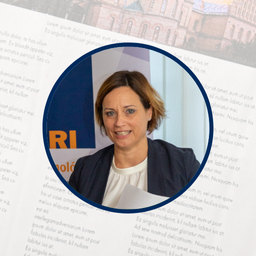
Szandra Windt
5 min read
Socio-economic changes have always impacted the structure of employment, the labour market and the perception of its actors. For decades, ageing and shrinking European societies have tried to respond to these phenomena by employing migrant ‘guest workers’. While employment models in Hungary are currently changing and involving, a rise in migrant workers has been identified.

Anna-Greta Pekkarinen
5 min read
Forced marriage takes place all over the world. It is declared a violation of human rights by many international bodies and in legal instruments such as the Istanbul Convention. Victims of forced marriage are usually women or girls, but all genders can be forced to marry.
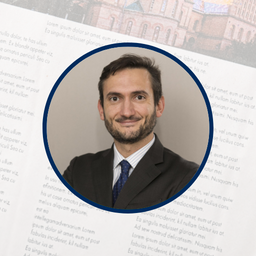
Francesco Calderoni
5 min read
Labour exploitation remains a pervasive issue within Europe, undermining social justice, violating human rights, and distorting economic competition. Despite concerted efforts to combat this scourge, traditional approaches often fall short; this is where the European Project INVERT steps in, offering innovative tools and methodologies to effectively identify and address labour exploitation.

Maria Nassar
5 min read
Whether in the dismissal or prosecution of cases, doubt has often been cast on statements made by victims of domestic violence. Even after enduring the trauma of abuse, the victim can frequently be discouraged from seeking justice by societal pressures.

Iro Michael
5 min read
Institutional violence against women victims refers to the systemic violence that can occur when the victim is confronted with attitudes or beliefs, practices and policies that enforce structural oppression and violate the human rights of women, and their rights as crime victims.
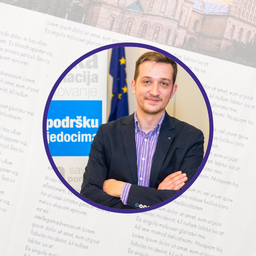
Miren Špek
5 min read
Crime is not only a wrong against society, it is also a violation of victims’ individual rights. Victims of crime should therefore be recognised and treated in a respectful, sensitive, and professional manner without discrimination of any kind or for any reason.

Norbert Leonhardmair
5 min read
To effectively combat human trafficking multi-agency cooperation is imperative. However, cooperation faces challenges, particularly with respect to of cross-border and cross-sectoral coordination. Additionally, depending on the specific form of exploitation different actors need to be involved in identifying victims and implementing preventive measures.
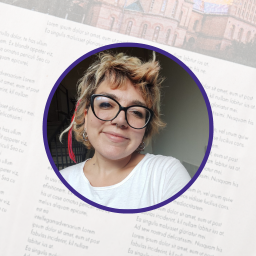
Georgia Chondrou
5 min read
As an active member in the fight against gender-based violence, it is of significant importance for me to actively contribute in underlying the correlations that exist between dynamics of gender-based violence and trafficking.
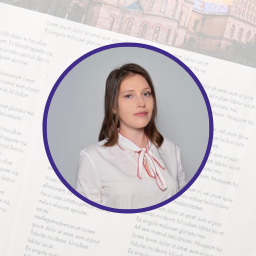
Maria Lachova
5 min read
Human trafficking is a severe violation of human rights. Compensation for the victims of this crime has a restorative, preventive and punitive function and is a key tool to combat human trafficking. Every victim of trafficking has the right to effective protection measures, including compensation.
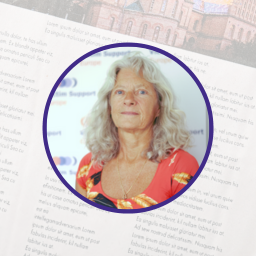
Pamela Dalby
5 min read
To alleviate the emotional stress felt by victims, virtual reality (VR) experiences are being offered as a means of introducing them to the courthouse where the trial will take place and sensitizing them to the trial day events. Immersonal’s immersive familiarization experiences allows victims – and witnesses – to explore the courthouse from the safety of either their own home or in the presence of a victim support worker.

Lieselotte Van Den Heuvel
5 min read
As a strong advocate for the rights and well-being of victims of crime, I find myself compelled to voice both appreciation and concern regarding the ongoing revision of the Anti-Trafficking Directive (2011/36/EU) by the European Commission. Over the past decades, substantial progress has been made in international and European policies, with the adoption of crucial legislations such as Directive 2011/36/EU and the 2012 Victims’ Rights Directive, which provides a minimum set of rights benefitting all victims of all crimes. Yet, as we stand in the advanced revision stage of these directives, there remains an urgent need to address the evolving challenges faced by victims of human trafficking.
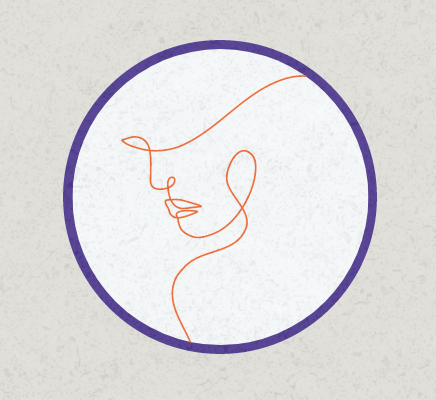
Anonymous
5 min read
I write this article as a 65 year old woman, to highlight how domestic violence in my family affected my childhood and affects my adulthood, in the hope that those suffering from partner violence take the decision to leave an abusive relationship sooner rather than later.

Aitana Radu
5 min read
First and foremost, I would like to start by clearly stating that I am by no means an expert in human trafficking. By comparison to many colleagues in the field who have devoted their life to researching this topic, my path towards it has been much more recent and circumvoluted. However, by working in the field of intelligence studies, with a special interest in the use of open-source intelligence analysis for threat identification of cross-border crimes, meant that in the last years I found myself engaging in in-depth exchanges with close colleagues and friends from international organisations, national agencies as well as grassroot NGOs working on this challenging topic.
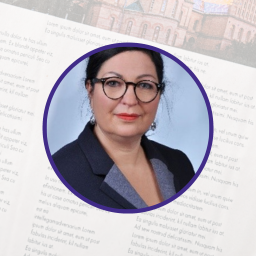
Astrid Passin
5 min read
Because of my own experience of losing a relative in a terrorist attack, my search began into the needs of those similarly affected. The loss of my father on 19 December 2016, at the Christmas market in Berlin, was so impactful that my role in life became one of helping victims of terrorism in Germany and abroad.
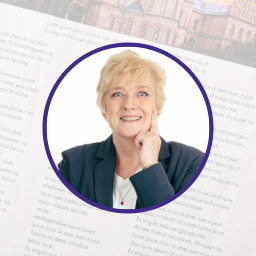
Barbara Louw
5 min read
There are people among us who experienced blissful childhoods. Then one day, out of the blue, there is a traumatic event that blows through their lives and destroys their life assumptions. Nothing they ever experience could prepare them for the destruction and pain they have to deal with.

Nina Fuchs
5 min read
As a survivor of sexualised violence, Nina Fuchs feels compelled to shed light on her experiences with the crucial issue of how professionals in law enforcement and the justice system treat survivors like herself.

John O’ Mahony
5 min read
As a former Police Officer with 40 years’ experience of working with victims of crime and, since my retirement from An Garda Siochana in 2017, have been working on a voluntary basis as an Advocate for crime victims, I want to highlight what I believe is an additional challenge for Victim Support organisations everywhere.

Peter Crory
5 min read
Any just society will choose to prevent problems rather than to treat them. This costs much less money but more importantly avoids the harm to be caused. Yet our government budgets too often fail to fund upstream so we are left to deal with the consequences, in our field of work….. the impact of crime.
As victim support agencies should our focus then rest on the victims’ journey from crime to court or are we called to serve a greater agenda?

Leena-Kaisa Åberg
5 min read
Something unexpected happened in Finland in October 2020. A Psychotherapy Centre called Vastaamo and its clients became victims of a major data breach in which sensitive patient information was stolen and later disseminated online. The actual hacking of the database had happened much earlier in 2018-2019 but became public in October 2020.

Andrea Walraven-Thissen
5 min read
Most people will never get to meet us and I hope you never will; when we get called to an incident serious tragedy has struck. Often multiple people have died and we join the blue light services to set up the incident management and psychosocial emergency support for both civilians and the first responders involved.
Depending on what happened a big part of our work is to prevent many “well meant but not well done”-initiatives; when we witness tragedy this causes feelings of helplessness in us and we often smother the people affected by wanting to completely take over and control their situation. But we are not helping them if we do, we are actually mitigating our own helplessness into an action perspective.

Frederico Marques
5 min read
From time to time, in Portugal, we are surprised by court decisions that stray from progress that has been made in recent years, in terms of the protection and promotion of the rights and interests of victims of crime.
Not long ago, the Lisbon Court of Appeal published a decision relating to a case of domestic violence: an 87-year-old man had been convicted, in the first instance, of abusing his 82-year-old wife and was given a prison sentence of 4 years and 4 months. Additionally, he was barred from contacting the victim for 5 years and was further obliged to attend a program on the prevention of domestic violence.

Colm Smyth
5 min read
Yesterday, 13th October 2022, I was re-traumatised by a Healthcare professional. In Northern Ireland the UK govt set up a compensation fund for victims of the ‘Troubles’. It is called the Troubles Permanent Disablement Payment Scheme and administered by the Victims Payments Board. It is to provide successful applicants with between £2000-£10,000 annually to help improve their quality of life. I applied 12 months ago and since then I have provided all medical, therapist and personal documentary evidence of my PTSD and what happened to me as a survivor of the Loughinisland Massacre that took place on 18th June 1994.
